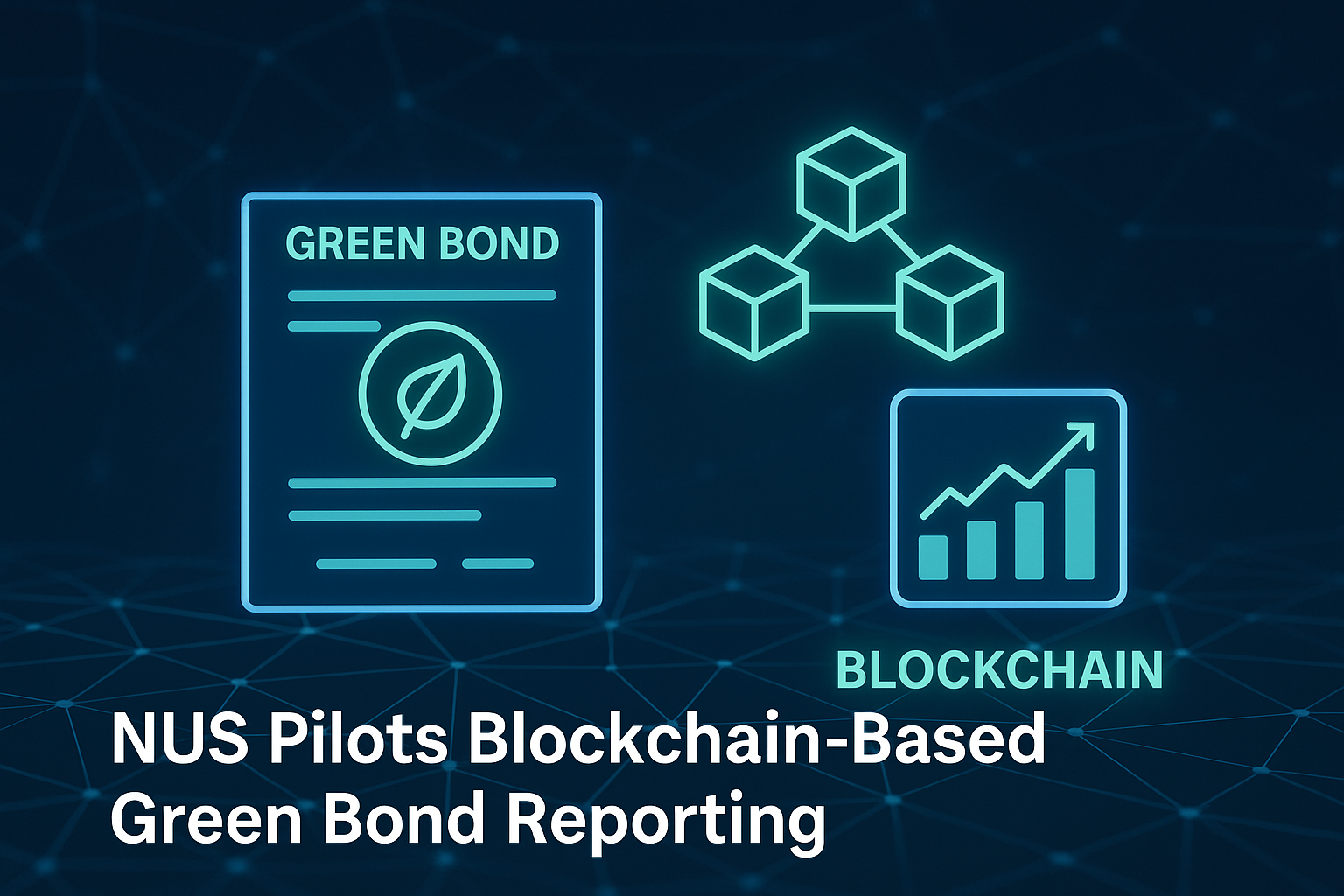In a groundbreaking initiative that could reshape the future of sustainable finance, the National University of Singapore (NUS) has teamed up with Northern Trust and UOB to launch Asia’s first blockchain-based green bond reporting pilot. This project marks a pivotal shift toward transparency, accountability, and innovation in ESG (Environmental, Social, and Governance) investing.
The core concept? Tokenizing green bond credentials using blockchain technology. In simple terms, the essential sustainability data behind green bonds—like carbon impact metrics, environmental compliance, and project funding use—is stored immutably and transparently on a distributed ledger. This move not only modernizes the green finance sector but also reinforces trust between issuers, investors, and regulators.
Why This Matters
As climate change continues to drive regulatory and investor demand for credible ESG strategies, greenwashing—where companies exaggerate or falsify their eco-friendly claims—has emerged as a major concern. Blockchain’s inherent immutability and auditability make it a powerful antidote to this issue.
The pilot, initiated at NUS’s Sustainable and Green Finance Institute (SGFIN), aims to:
-
Provide real-time tracking and reporting of green bond performance
-
Ensure data provenance and tamper-proof records
-
Increase investor confidence through verifiable impact metrics
-
Lay the groundwork for wider adoption across Asia-Pacific
UOB, one of Southeast Asia’s leading banks, provided the green bond issuance infrastructure, while Northern Trust contributed its experience in asset servicing and digital innovation.
Blockchain Meets Sustainable Finance
This pilot doesn’t just test a technology—it redefines a standard. By tokenizing green bond credentials, the project sets an example of how blockchain can bridge the trust gap in ESG reporting, ultimately enabling more scalable, reliable, and efficient sustainable investing.
The implications are massive. From automated ESG compliance to on-chain environmental audits, this initiative could serve as a blueprint for other financial institutions looking to future-proof their sustainable investment practices.
What’s Next?
With increasing international pressure to improve ESG disclosures and the rising popularity of tokenized real-world assets (RWAs), projects like this could soon become the norm rather than the exception. If the pilot proves successful, we could see this model replicated in green infrastructure bonds, renewable energy projects, and sustainability-linked loans across the region.
For now, Asia watches closely as NUS, Northern Trust, and UOB light the path forward.




